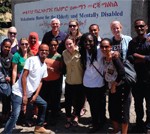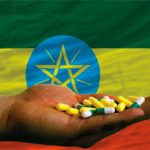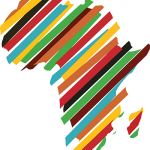So what did Dr. Doualla and her colleagues present to the Cameroonian government?
“The training consists of three different groups. The first is a four-year fellowship for those who have completed training in general medicine (after a selective entrance exam). The first year of the fellowship concentrates on internal medicine fundamentals. The following three years, trainees rotate through different rheumatology units in Cameroon. (At present, there are only two qualified units [i.e., locations that have teachers, basic imaging and immunology labs]).
“The second group consists of internal medicine fellows who have completed their three-year training and who aspire to rheumatology as a subspecialty. Those selected are admitted for a two-year residency in rheumatology and emerge as an internal medicine rheumatologist.
“The third group is a two-year specialization for paramedics in the field of musculoskeletal diseases. Our goal is to have physical therapy training adapted to rheumatologic conditions. We have physical therapists for orthopedic surgery and others, but none yet for rheumatology. The two-year program will require that applicants have completed training as a nurse.”
Asked what gives her hope for the treatment of arthritis in Africa, Dr. Doualla notes, “We are seeing an increase in the awareness of rheumatic conditions and the lifelong problems they can cause. We still have a long way to go, however. Remarkably, in the recent noncommunicable disease action plan created by the government, rheumatic diseases were not listed! This is mostly because there are not enough people to advocate for rheumatology and the disabled. People think, ‘Oh, the women in the villages can manage even though they are in pain.’ The fact is that a stroke speaks louder than back pain.”
South African Advances
But in Africa, there are lifelong advocates, such as Girish M. Mody, MD, the Aaron Beare Family Professor of Rheumatology in the School of Clinical Medicine at the University of KwaZulu-Natal in Durban, South Africa.

Girish M. Mody, MD
Dr. Mody is a past president of the African League Against Rheumatism and an Ambassador for the Bone and Joint Decade. He says, “Over the past three decades, I have seen much progress, albeit at a slow rate. Not only have we made strides here in South Africa, but we have shining examples, like the UWEZO Project in Kenya, a collaboration between Kenyan, U.K. and Swedish rheumatologists. This team trained physicians and healthcare workers to conduct an educational program at 11 sites across Kenya. Via this train-the-trainer program, those individuals were able to provide basic skills to over 500 healthcare workers.”



